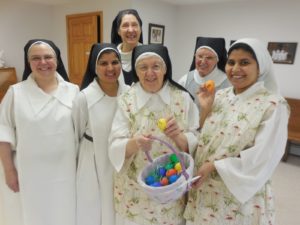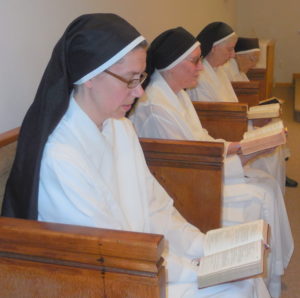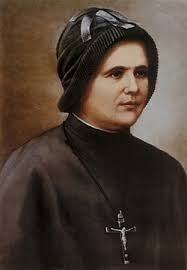 The Apostles of the Sacred Heart of Jesus joyfully celebrated the Mass of Beatification of their foundress, Blessed Clelia Merloni, on Saturday, November 3, 2018, at the Basilica of St. John Lateran in Rome, Italy. The mass marked an historic event anticipated by the Apostles and by thousands of lay faithful throughout the world. Mother Clelia gives us a tremendous example of one who suffered from false accusations, misunderstandings and even exile from her sisters, yet she responded with forgiveness, humility and charity. Her deep understanding of God’s love for her enabled her to unite herself with her crucified Spouse.
The Apostles of the Sacred Heart of Jesus joyfully celebrated the Mass of Beatification of their foundress, Blessed Clelia Merloni, on Saturday, November 3, 2018, at the Basilica of St. John Lateran in Rome, Italy. The mass marked an historic event anticipated by the Apostles and by thousands of lay faithful throughout the world. Mother Clelia gives us a tremendous example of one who suffered from false accusations, misunderstandings and even exile from her sisters, yet she responded with forgiveness, humility and charity. Her deep understanding of God’s love for her enabled her to unite herself with her crucified Spouse.
Cardinal Giovanni Angelo Becciu, Prefect of the Congregation for the Causes of the Saints, and representative of Pope Francis at the Mass of Beatification, said of Mother Clelia in his homily: “She shared the wound in the Heart of Jesus, responding to hostility and contempt with love. She placed all opposition before the Tabernacle. This is what sustained her. Before the Heart of Jesus, she recognized that His will was to be reconciled with everyone.”
In her words of gratitude to Cardinal Becciu, Mother Miriam Cunha Sobrinha, the Superior General of the Apostles of the Sacred Heart of Jesus, proclaimed: “This moment confirms the timeliness of Mother Clelia in the Church and opens for us a new era of hope, because Mother’s life, lived in hiddenness and as an offering to God, shows us that suffering, pain, misunderstanding, slander and persecution are not the last word. The last word belongs to the merciful love of God who loves us and forgives us always!”
While 15 sisters from the United States Province of the Apostles of the Sacred Heart of Jesus traveled to Rome to join the thousands of pilgrims gathered for this long-awaited gift, the remainder of the sisters in the United States gathered either in Hamden, Connecticut at the Provincial House or in St. Louis, Missouri. With inexpressible joy, the sisters watched the live coverage on EWTN, complete with the English commentary by their own Junior Professed, Sr. Elizabeth Doyle. Regional celebrations are scheduled in the spring at the cathedral of each diocese where the Apostles now serve in the United States. For information about the dates of these liturgies, please visit www.ascjus.org.
Mother Clelia, the humble servant who pronounced her “Fiat” with so much love and trust, was born in Italy on March 10, 1861. In 1892, Clelia entered the Congregation of the Daughters of Our Lady of Providence in Como where she became ill with tuberculosis. When she made a sudden recovery at the end of a novena to the Sacred Heart of Jesus and the Immaculate Heart of Mary, she felt that she was mercifully given another chance at life. She developed a clear and precise vision of what she had to do: to dedicate herself to the good of the poor, orphans and the abandoned, to offer her life of good works for the conversion of her atheist father, and to become a spiritual mother of souls by founding a religious congregation of sisters consecrated to the Sacred Heart of Jesus.
On May 30, 1894, at the age of 33, she fulfilled her dream. During a ceremony attended by her first two companions and “a great host of the faithful” (as described by witnesses), the first three Apostles were presented to the parish and the Congregation of the Apostles of the Sacred Heart of Jesus was born.
The Institute blossomed without delay. Clelia immediately opened a school, which soon outgrew itself. A nursery school, a home for the elderly, and a sheltered workshop followed. Then, thanks to the generous support of her father, Clelia acquired the Palazzo Montecatini, where she was able to welcome orphans and the elderly. In addition, the Sisters taught catechism to the parish children.
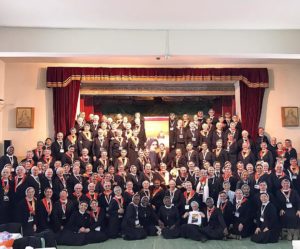 The number of Sisters in the Congregation quickly grew. To add to the heavenly graces that were blessing the new Congregation, Clelia became the sole beneficiary of her father’s substantial patrimony upon his death in 1895, whose conversion on his deathbed was aided by her many prayers and sacrifices. But the resultant expansion of her works ended abruptly after only three years when the dishonesty of the priest who administered her father’s inheritance led to complete bankruptcy. This forced the Apostles to abandon their numerous missions.
The number of Sisters in the Congregation quickly grew. To add to the heavenly graces that were blessing the new Congregation, Clelia became the sole beneficiary of her father’s substantial patrimony upon his death in 1895, whose conversion on his deathbed was aided by her many prayers and sacrifices. But the resultant expansion of her works ended abruptly after only three years when the dishonesty of the priest who administered her father’s inheritance led to complete bankruptcy. This forced the Apostles to abandon their numerous missions.
Divine Providence was watching over them and so the Congregation did not fail. On the contrary, it received new impetus from the Bishop of Piacenza who accepted the floundering group into his diocese and, in 1900, launched the Apostles in mission to Italian immigrants who had settled in Brazil, and then to the Italians in Boston two years later. By 1903, the Congregation numbered 196 Sisters in 30 houses worldwide.
Mother Clelia, however, became a victim of calumny after the bankruptcy and subsequent law suits. Not wanting to accuse the priest publicly, she took the blame on herself, which led to untold misunderstanding. She was no longer consulted on matters regarding the Congregation’s governance and in 1904, by Vatican decree, Mother Clelia lost her title of Superior General, and the passage of authority went to another sister.
Even though Mother Clelia was reinstated the following year, three Apostolic investigations followed, at the end of which Mother Clelia was once again removed from office with a decree from the Sacred Congregation of Religious in 1911. Numerous requests by Mother Clelia to review her case were left unanswered. Alone and considering herself an obstacle to the peace of the community, Clelia decided to leave the Institute she had founded rather than to see it torn apart by discord.
In 1916, she received a dispensation from her religious vows. Thus, began a most difficult period of exile. Her name became unknown to successive generations of Apostles; it was prohibited to correspond with her or send any means of support, and sisters who had been loyal to her were expelled from the Congregation.
In 1920, Mother Clelia wrote to the Pope, begging to be allowed to reenter the Congregation that she had founded. Many years passed before she was finally allowed to return to the Generalate in Rome in 1928. Aging and quite weak, and deprived of any association with the other Sisters, Mother Clelia spent the last two years of her life in solitude and prayer before the Blessed Sacrament and in self-offering to the Heart of Jesus. The hallmark of her charity was the unconditional forgiveness she gave to all who had been the cause of her sufferings over the years.
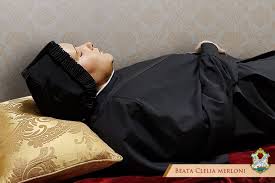 Mother Clelia Merloni died in Rome on November 21, 1930 and was buried in nearby Campo Verano Cemetery, which was heavily bombed during World War II. On May 20, 1945, after a painstaking search, her body was found incorrupt and was transported to the main chapel at the Generalate. On April 23, 2018, the seal on her tomb was opened in the presence of medical authorities from the Congregation for the Causes of Saints. Now her body has been prepared to be viewed in a new glass tomb in the Chapel at the Generalate of the Apostles of the Sacred Heart of Jesus in Rome.
Mother Clelia Merloni died in Rome on November 21, 1930 and was buried in nearby Campo Verano Cemetery, which was heavily bombed during World War II. On May 20, 1945, after a painstaking search, her body was found incorrupt and was transported to the main chapel at the Generalate. On April 23, 2018, the seal on her tomb was opened in the presence of medical authorities from the Congregation for the Causes of Saints. Now her body has been prepared to be viewed in a new glass tomb in the Chapel at the Generalate of the Apostles of the Sacred Heart of Jesus in Rome.
Her sisters today number over 1,000 members and serve in 15 countries: Italy, Brazil, the United States, Switzerland, Argentina, Chile, Albania Mozambique, Uruguay, Paraguay, Benin, the Philippines, Haiti, Ireland and Portugal. The Congregation’s presence in the United States dates from 1902, when six Apostles journeyed from Italy to Boston to serve the Italian immigrants. The Apostles left Boston and arrived in New Haven, Connecticut, in 1906. The provincialate was transferred to Mount Sacred Heart in Hamden, Connecticut in 1953. The ministries of the Apostles of the Sacred Heart of Jesus include education, healthcare, social work, parish ministry, legal services and prison ministry.
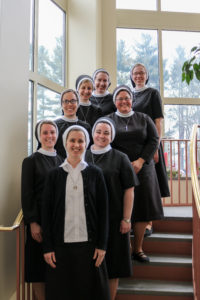 In 1988, the cause of beatification of Mother Clelia Merloni was opened. On January 27, 2018, Pope Francis signed the approval of the miracle of Mother Clelia Merloni. Blessed Clelia Merloni’s feast day will be celebrated in the Church on November 20, which is the eve of the anniversary of Clelia’s death―November 21, 1930.
In 1988, the cause of beatification of Mother Clelia Merloni was opened. On January 27, 2018, Pope Francis signed the approval of the miracle of Mother Clelia Merloni. Blessed Clelia Merloni’s feast day will be celebrated in the Church on November 20, which is the eve of the anniversary of Clelia’s death―November 21, 1930.
Mother Clelia once said: “Throw yourself with complete trust in the Heart of Jesus, hoping for and expecting every advantage, support, and victory from Him alone.”
Blessed Clelia, pray for us!
Contact: Sr. Colleen Therese Smith, ASC
Email: advancement@ascjus.org
Phone: 203-281-2562
PS> There are Regional celebrations of Bl. Mother Clelia’s life taking place all throughout the spring in the following states: Florida, Pennsylvania, New York, Missouri and Connecticut. Please see their website for locations and times.
Like this:
Like Loading...
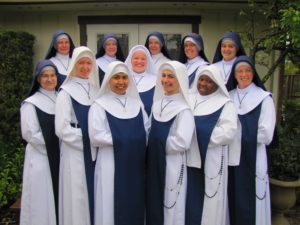
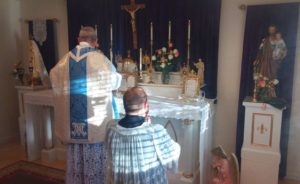

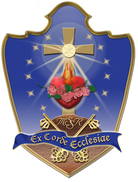




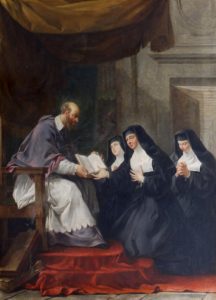


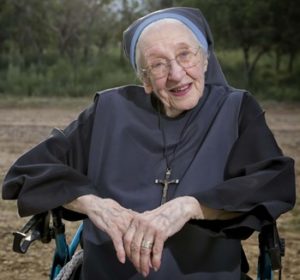
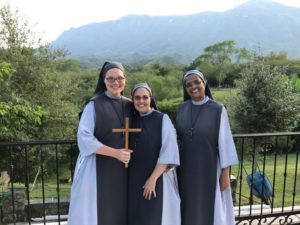


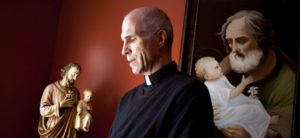
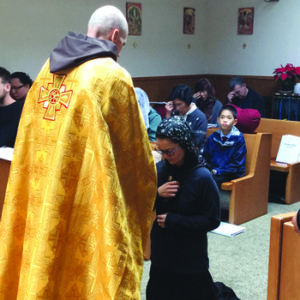
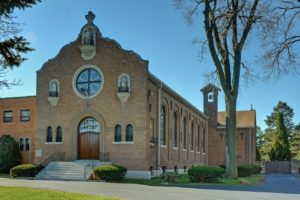
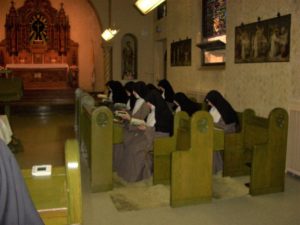
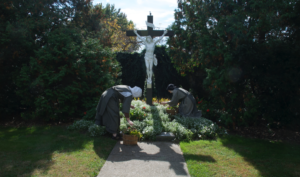
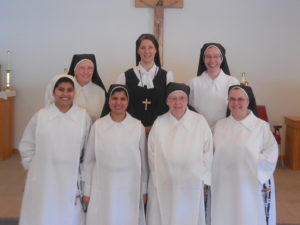 The IRL is very delighted to welcome a new affiliate: The Dominicans Nuns of Our Lady of Mount Thabor Monastery in Ortonville, Michigan (Archdiocese of Detroit). The contemplative community lives the joy-filled monastic life of prayer, work, silence, and study… all for the sanctification of souls!
The IRL is very delighted to welcome a new affiliate: The Dominicans Nuns of Our Lady of Mount Thabor Monastery in Ortonville, Michigan (Archdiocese of Detroit). The contemplative community lives the joy-filled monastic life of prayer, work, silence, and study… all for the sanctification of souls!